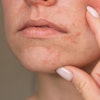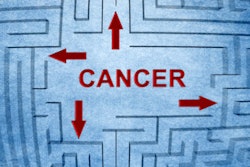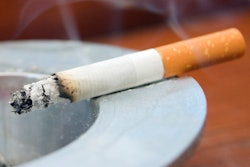
What would it take for you to try to kick the habit? Free two-week nicotine replacement therapy starter kits given by primary care doctors to smokers increased their attempts to quit, according to a recently published study in Addiction.
The researchers reported that 26% of patients who received nicotine replacement therapy samples achieved at least one week without smoking, and about 48% made at least one attempt to quit after receiving smoking-cessation resources.
"Providing smokers with a free two-week starter kit of nicotine replacement therapy increased quit attempts, use of stop smoking medications, and smoking abstinence compared with standard care in a primary care setting," wrote the authors, led by Matthew Carpenter, PhD, of the psychiatry and behavioral sciences department at the Medical University of South Carolina in Charleston (Addiction, January 8, 2020).
A conversation starter
About 34 million adults in the U.S. currently smoke cigarettes, and about two-thirds of them say they want to quit. The majority of adult cigarette smokers also have tried to quit during the past year, according to a smoking-cessation report released in January 2020 by the U.S. surgeon general.
Kicking the habit reduces the risk of more than a dozen types of cancer, including lung, oral, laryngeal, pharyngeal, and esophageal cancers. On average, it takes a minimum of seven attempts to quit before people are successful. Therefore, any way clinicians can start the conversation about cessation with smokers can help move them toward ending their addiction to tobacco.
The researchers conducted the cluster randomized clinical trial at 22 primary care clinics in South Carolina. The $2 million study, known as Tobacco Intervention in Primary Care Treatment Opportunities for Providers, was conducted in collaboration with the National Institute on Drug Abuse.
The study required primary care doctors to give kits to 1,245 motivated and unmotivated smokers. Kits contained smoking-cessation advice plus two-week supplies of nicotine patches and lozenges at no charge.
About 150 patients who underwent nicotine replacement therapy abstained from smoking for one week, while about 290 patients made attempts to quit smoking during the study period, according to the researchers. Additionally, 70 patients who received kits from their doctors completely stopped smoking for six months, they noted.
The results show promise, but the absence of biological verification of smoking status is a glaring limitation of the study, according to the authors. Though methods for remote collection of saliva samples for testing of cotinine, which is the predominant metabolite of nicotine, exist, the researchers believe they don't lend themselves to nicotine replacement therapy interventions. Other weaknesses in the study include the lack of blinded assessment during follow-up, which may have introduced bias.
A strategy worth considering
The challenges of delivering effective, scalable smoking-cessation interventions within real-world medical settings are significant, but they also breed opportunities, the authors wrote.
"Provision of medication samples to promote smoking abstinence within the context of primary care is wholly consistent with seminal recommendations to do so and may be a practical, disseminable strategy to get more smokers engaged in evidence-based care," they wrote.




















